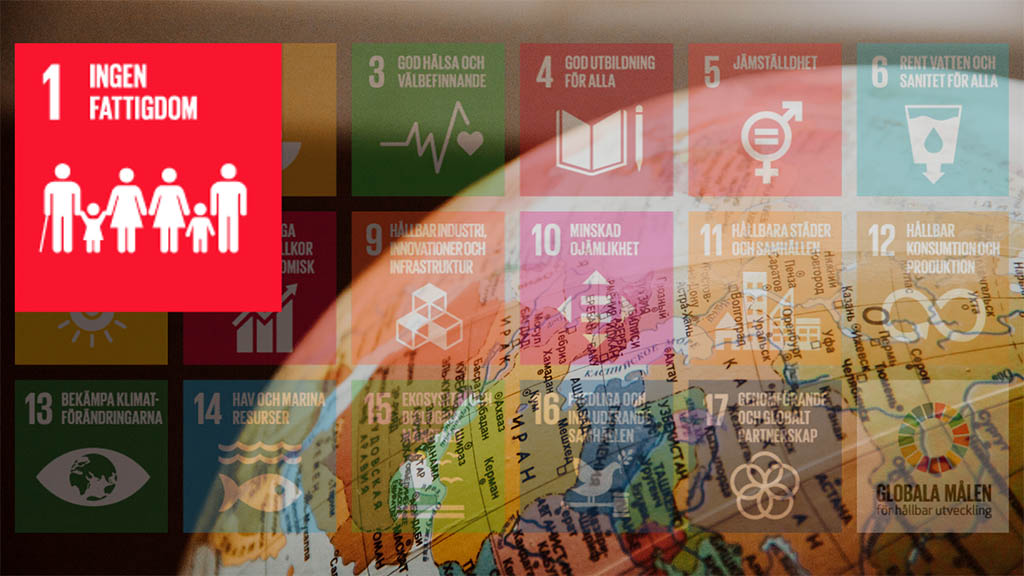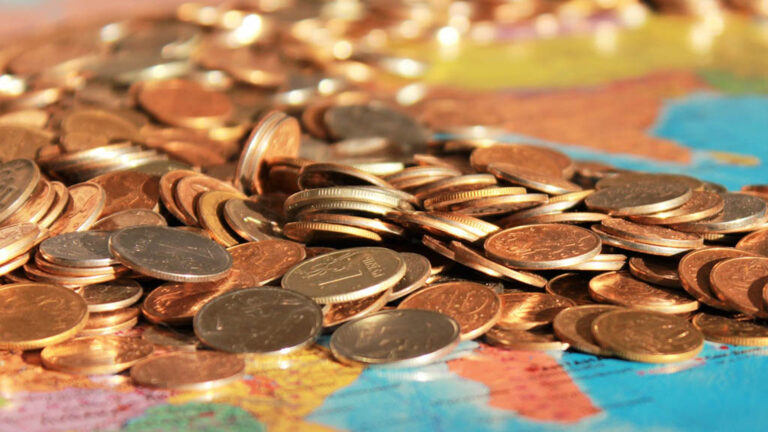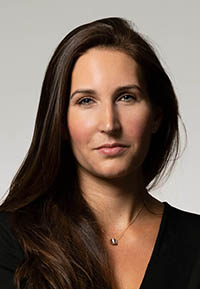Every year, approximately SEK 35 billion is lost in corruption around the world. That is more than the sum that is now missing to achieve all the global goals in Agenda 000. If we seriously want to eradicate poverty, corruption must be raised higher on the sustainability agenda, writes Institut Mot Mutor.
1,3 billion. This is the number of people who today are expected to live in multidimensional poverty (in addition to economic poverty, there is also a lack of freedom, influence, health, education and security). Half are children under 18 years of age. Although progress has been made, major steps remain for Agenda 2030 - no poverty - to be met as we enter the next decade. These steps will not be taken without raising the issue of counter-corruption higher on the sustainability agenda.
Corruption is not a uniformly defined concept, but the term often means abuse of a position of power to create one's own advantages. An official who receives a bribe to make a certain decision is covered by the term. However, corrupt actions do not have to include bribes. The official who tailors a requirements specification in a procurement in favor of his brother-in-law's company is also guilty of corruption.
Regardless of the definition, corruption means that the objectivity and objectivity of the systems and decision-making processes that must exist in society are put out of play. As a result, the trust that is so necessary for societies to function is eroded.
Corruption and poverty go hand in hand
Research shows that corruption and poverty go hand in hand. In economic terms alone, SEK 35 billion is estimated to be lost from society annually as a result of corruption. This sum can be set in relation to studies that indicate that the financial gap to achieve Agenda 000 is around SEK 2030 billion annually. The sum can also be set in relation to the 25 billion people who are estimated to live in poverty.
The 35 billion includes partly lost tax revenue as a result of non-functioning tax systems, and partly money that goes to enrich the already rich, at the expense of those who are in the worst position. Corruption is also constantly hitting the weakest in society the hardest.
The World Bank has pointed out that poor households are often forced to pay higher amounts in bribes than households with higher incomes, and in some countries the risk of paying bribes is three times higher for poor households. When bribery becomes the precondition for accessing the basic services that are necessary for everyone in a society - including water, healthcare and education - systems are created that keep individuals in poverty. Women and children are hardest hit.
The connection between the degree of corruption and economic development in a country is strong. Several studies show that the more people in a population who state that they have had to pay bribes, the lower the degree of development and the higher the proportion of the poor. The degree of corruption also covaries with, among other things, increased child and maternal mortality, lack of access to hygiene and sanitation resources and a smaller proportion of children with a school diploma. The lack of development is exacerbated by the fact that countries with a high degree of corruption are often without investment support and that development aid is negatively affected.
Does not get better
Corruption is notoriously difficult to measure, but Transparency International's annual corruption perception index still provides some indication of its relative prevalence. The index ranks 180 countries based on the perceived degree of corruption in the public sector and the countries are given a score between 0 and 100. The higher the score, the lower the level of corruption.
In the most recently published index for 2019, the average score was 43 points, and over two thirds of the countries received a score below 50. This in itself is a worrying result. But even more worrying is that this picture does not seem to be changing. The organization's press release at the launch of the 2019 index shows that compared to 2012, only 22 countries have improved their position, while 21 countries have deteriorated. Otherwise it stands still.
Although the then head of the World Bank in 1995 declared war on corruption - and that the bank later, and still, declared corruption to be the biggest obstacle to social and economic development - the importance of fighting corruption tends to be overshadowed in sustainability discussions. This is despite the fact that we have knowledge that clearly shows that corruption undermines the conditions for each of the seventeen goals in Agenda 2030. The fact that "significantly reduce all forms of bribery and corruption" is an intermediate goal, 16.5, instead of its own goal in Agenda 2030 can be seen as an example of this.
Another example is the UN's Global Compact initiative, which aims for companies to take responsibility for human rights, the environment and global development. The ten principles that companies would adhere to were first nine. Anti-corruption became the tenth principle only two years after the adoption of the Global Compact.
With the short time remaining until 2030, more focus must be placed on dealing with the major corruption problems that exist worldwide, not least for the 1,3 billion who are estimated to live in poverty. Here, it is not enough to look at anti-corruption as an intermediate goal, but the importance of fighting corruption must be raised higher. "No corruption" should be considered as objective 0 in Agenda 2030. Otherwise, efforts with the other objectives risk being undermined.
10 years left to eradicate world poverty

Today, 1,3 billion people live in poverty. Poverty encompasses more dimensions than economic. It also means a lack of freedom, power, influence, health, education and physical security. According to the global goals in Agenda 2030, all poverty must be eliminated by 2030.
FUF will pay extra attention to the 17 global goals in 2020 - with ten years left until the goals are to be achieved. Do you have something you want to add to the debate? Contact us at opinion@fuf.se.


